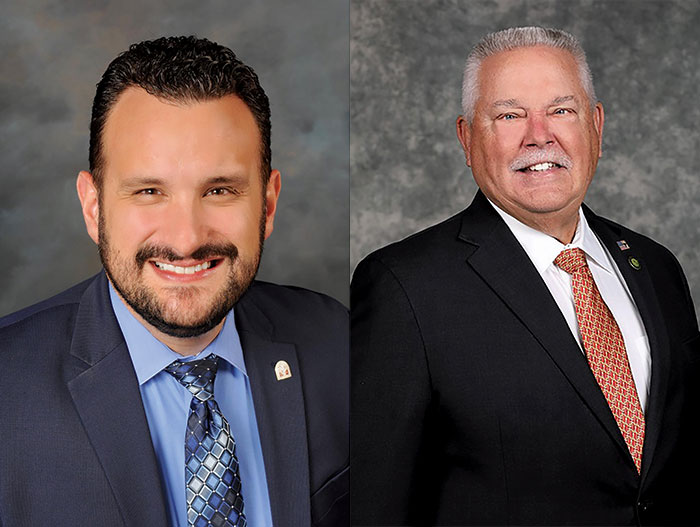Claremont McKenna issues sanctions to Athenaeum blockaders
Claremont McKenna College (CMC) issued sanctions to seven CMC students who blockaded a speech by conservative pundit Heather Mac Donald at CMC’s Athenaeum, the college announced in a press release on July 17.
Three of the students involved were suspended for one year, two were suspended for one semester and two were placed on conduct probation. The college identified these students by examining video and photographic evidence available of the protest against Ms. Mac Donald’s speech.
The college initially investigated twelve CMC students involved in the blockade and charged ten with policy violations, but three were found not responsible for policy violations by an independent panel comprising a faculty member, a staff member and a student, that evaluated the charges.
CMC also sent information regarding policy violations during the blockade by students from the other Claremont Colleges to the deans of students at their colleges, and requested that they pursue disciplinary action.
CMC provisionally banned four of these students from the CMC campus for, pursuant to the Colleges’ inter-campus banning policy. These bans are unrelated to any sanctions the students’ home colleges may issue and do not prevent the students in question from participating in academic activities on CMC’s campus.
The blockade was organized on Thursday, April 6 of an on-campus talk, “The War on Police,” by Ms. Mac Donald. Demonstrators accused Ms. Mac Donald of spreading racist, Islamophobic, fascistic and xenophobic rhetoric, and attempted to stop the talk.
Ms. Mac Donald is the Thomas W. Smith Fellow at the Manhattan Institute and a contributing editor for the City Journal in New York.
Approximately 40 to 50 demonstrators assembled at the Honnold-Mudd Library at 4 p.m. on April 6 and marched to the Athenaeum. During the march, the group, which CMC refers to as the “Blockade Group,” grew to approximately 170 people.
The Blockade Group was comprised primarily of Claremont Colleges students, but other individuals were also present, according to the CMC website.
When the Blockade Group reached the Athenaeum, it dismantled security fences erected by Campus Safety Officers and broke through a secondary security boundary organized by Campus Safety, and blockaded the main Athenaeum entrance. Blockaders later moved to block other entrances.
Despite the blockade, Ms. Mac Donald entered the Athenaeum. However, since no attendees were able to access the building, CMC implemented a contingency plan and livestreamed her speech online.
“The blockade breached institutional vales of freedom of expression and assembly. Furthermore, this action violated policies of both the College and the Claremont Colleges that prohibit material disruption of college programs and created unsafe conditions in disregard of state law,” CMC wrote in its press release.
An expanded page on CMC’s website details that the students violated College and consortium policy in preventing people from entering the building and engaging with Ms. Mac Donald’s presentation. CMC further contends that the students created dangerous conditions by blocking exits to the Athenaeum and the Kravis Center at CMC.
The three students who were suspended for one year were involved with leading, organizing or coordinating the blockade, CMC said on its website. The two who received one semester suspensions participated in the blockade, but were not leaders.
The two students placed on conduct probation received less strict sanctions than the other students involved because they provided information to the college and expressed remorse for and a desire to learn from their actions, CMC added.
The CMC students can appeal their sanctions if new information about the incident arose after the investigative panel issued its decision or if they believe a significant procedural error impacted the investigation’s results.
The non-CMC students who were banned from CMC’s campus can appeal their bans before they are fully implemented.
CMC acknowledges that it was not fully prepared for the extent and severity of the demonstrations against Ms. Mac Donald’s presentation, which it said was unique in CMC’s history.
“This was the first time that individuals intentionally breached security fencing or an established line of Campus Safety Officers,” the college said on its website. “The degree of coordination, planning and direction intention to block access to a building was unprecedented.”
CMC is evaluating its response to the demonstration, and will use information it gleans from this process to improve preparations for future demonstrations.
In its press release, CMC reaffirmed its commitments to freedom of speech and expression and to exposing its students to a range of perspectives and positions through on-campus events.
“Claremont McKenna College must take every step necessary to uphold these vital commitments,” the college wrote in its press release.
The COURIER was unable to reach Nana Gyamfi, an attorney who advised the students and has been acting as a spokesperson on their behalf, before press time.
—Marc Rod
marc.rod12@gmail.com








0 Comments